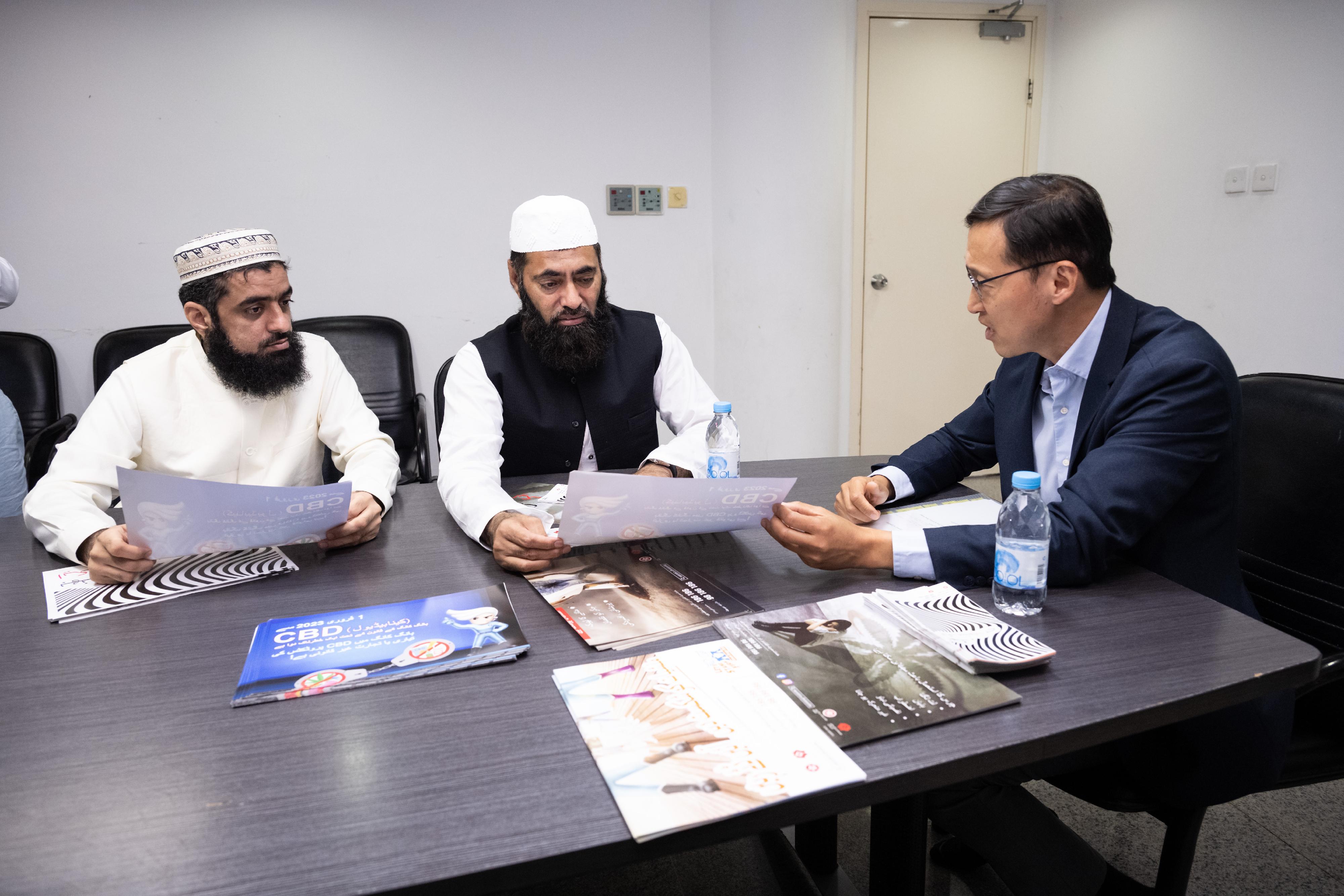The Hong Kong Special Administrative Region (HKSAR) Government announced today (August 22) that in response to the Japanese Government's plan to discharge nuclear-contaminated water at Fukushima, the Chief Executive, Mr John Lee, has instructed the Environment and Ecology Bureau and relevant departments to initiate import control measures to safeguard food safety and the health of Hong Kong citizens.
Mr Lee said, "Food safety and public health are the primary concerns of the HKSAR Government. The Japanese Government insisted on proceeding with discharging the nuclear-contaminated water which has been in contact with the nuclear fuel. The decision of conducting such an unprecedented and large scale discharge, which would last for 30 years, has blatantly ignored the inevitable risk on food safety and the irreversible contamination and damages to the marine environment. It is an irresponsible act which shifted the issue from oneself to another. The HKSAR Government strongly opposes such move."
The nuclear-contaminated water in Fukushima had direct contact with active raw nuclear materials. There are currently around 1.3 million cubic metres of radioactive nuclear-contaminated water, which involves at least 30 radionuclides, stored in some 1 000 tanks at the Fukushima Nuclear Power Station (FNPS). The Japanese Government plans to discharge the nuclear-contaminated water for a period of 30 years, with an annual discharge volume of up to 15 million cubic metres. There were plenty of examples round the world that immense efforts in design were trumped by human errors or other unpredictable causes, thus leading to mistakes and catastrophic outcomes. While it is impossible to have a foolproof design and operation, nuclear activities and relevant radionuclides will have long-lasting adverse impact on our future generations. Should anything go wrong with the discharge of nuclear-contaminated water in Fukushima, environment, ecology and food safety will be inevitably damaged. Experts have also pointed out that the radioactive substances could accumulate in the marine environment as well as inside the organisms. Therefore, the impact and risk brought about by the discharge in Fukushima on the marine ecology and food safety should be accorded with high level of concerns and prevention. The worries and concerns of the Hong Kong citizens are reasonable, normal and natural. It is necessary for the Government to make comprehensive and effective protection.
The Secretary for Environment and Ecology, Mr Tse Chin-wan, said, "Safeguarding food safety and public health in Hong Kong is the responsibility of the HKSAR Government. In the light of the potential serious risk, we must take relevant precautionary measures to safeguard food safety and health of public citizens."
The HKSAR Government, from August 24 onwards, prohibits the import of all aquatic products originating from the ten metropolis/prefectures, namely Tokyo, Fukushima, Chiba, Tochigi, Ibaraki, Gunma, Miyagi, Niigata, Nagano and Saitama, once the Japanese side commences the discharge of nuclear-contaminated water. These aquatic products include all live, frozen, chilled, dried, or otherwise preserved aquatic products, sea salt and unprocessed or processed seaweed. Relevant Food Safety Order will be gazetted tomorrow (August 23).
Apart from prohibiting aquatic products of relevant metropolis/prefectures from being imported into Hong Kong, the Centre for Food Safety (CFS) of the Food and Environmental Hygiene Department will perform its gatekeeping role at the import level, continue enhancing the testing on imported Japanese food to achieve dual protection. In fact, the CFS has since mid-June expanded the scope of testing to cover all Japanese aquatic products and stepped up tests on related processed food imported from Japan.
In addition, the HKSAR Government will maintain the existing import control measures on certain food products against the five prefectures, i.e. Fukushima, Chiba, Tochigi, Ibaraki and Gunma, since the 2011 Fukushima nuclear incident. At present, vegetables, fruits, milk, milk beverages and dried milk originating from Fukushima are banned from importing into Hong Kong while such foods originating from the four prefectures nearby Fukushima, i.e. Chiba, Tochigi, Ibaraki and Gunma, are allowed to be imported on the condition that they are accompanied with a radiation certificate and an exporter certificate issued by the Japanese authority. Chilled or frozen game, meat and poultry and poultry eggs originating from the above five prefectures are allowed to be imported on the condition that they are accompanied with a radiation certificate issued by the Japanese authority which shows the radiation levels do not exceed the Codex guideline levels.
With the view to enabling members of the public could have a better grasp of the latest safety information on imported Japanese food products, the Environment and Ecology Bureau will make public announcements every working day regarding the radiological testing results of the imported food from Japan, as well as the results of environmental radiation monitoring and radiological testing on local catch. The CFS, the Agriculture, Fisheries and Conservation Department and Hong Kong Observatory will announce relevant results on their respective websites.
The HKSAR Government will continue to maintain communication with the Japanese food import trade, the catering sector and the Japanese authority, and closely monitor the latest situation regarding food import from Japan and the discharge plan of the FNPS, with the view to safeguarding food safety and public health of citizens in Hong Kong.

